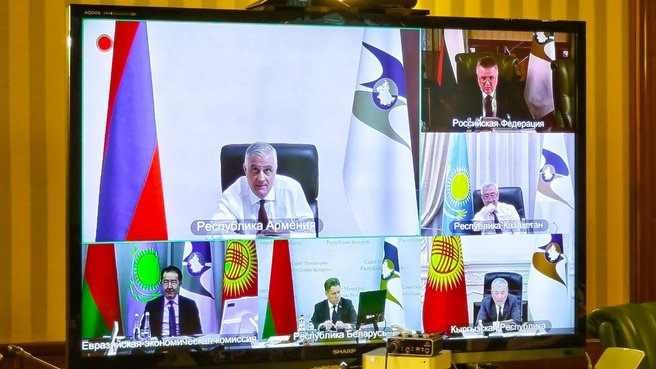The agenda focused on customs and tariff regulations, temporary import procedure used by customs, and other matters within the Council’s purview.
Deputy Prime Minister Alexei Overchuk attended a meeting of the Eurasian Economic Commission Council via videoconference. The meeting was chaired by Deputy Prime Minister of the Republic of Armenia Mher Grigoryan.
The participants focused on issues related to customs and tariff regulations, the use of the temporary import procedure by the customs, and other matters within the Council’s purview.
A decision was approved on certain issues related to using the customs procedure for temporary importation (admission), which will make it possible to optimise and systematise the legal regulations for temporary importation (admission) and develop unified law enforcement practices.
Amendments have been introduced to the Rules Regulating the Circulation of Veterinary Pharmaceuticals in the EAEU Customs Area. These amendments are aimed at simplifying the registration process for certain groups of veterinary medicines.
Changes have also been introduced to the Customs Union’s individual technical regulations, allowing for the possibility of indicating the former names of a location (such as a city or a region), or an element of the street and road network in cases where the geographic location has been renamed. The indication of former location names is permitted provided that the actual place of production remains unchanged. The aim of this measure is to reduce expenses associated with product rebranding following the renaming of geographic locations.
The participants exchanged views on defining approaches that should guide the EEC and the member states as they finalise the draft Agreement on E-Trade in the Eurasian Economic Union. The work on the draft agreement will be continued.
An International Skills and Professions Development Platform was presented to the EEC Council meeting at Russia’s initiative. This platform’s services are aimed at designing, developing, testing and introducing new professions and skills needed for the advancement of priority high-technology economic sectors and crucial technologies of the EAEU member states and other stakeholders.









